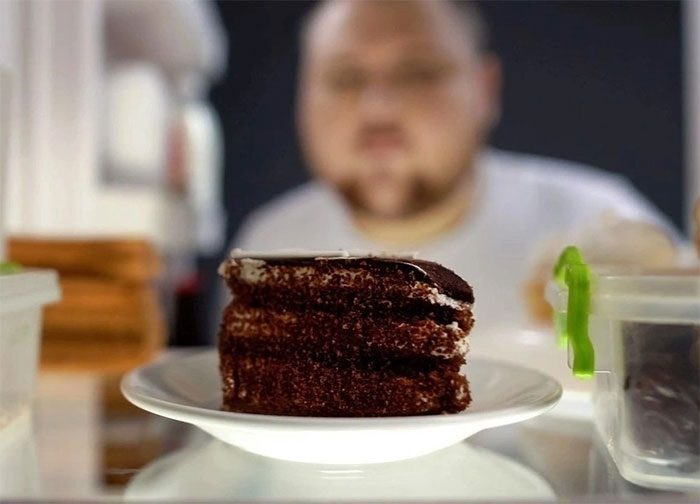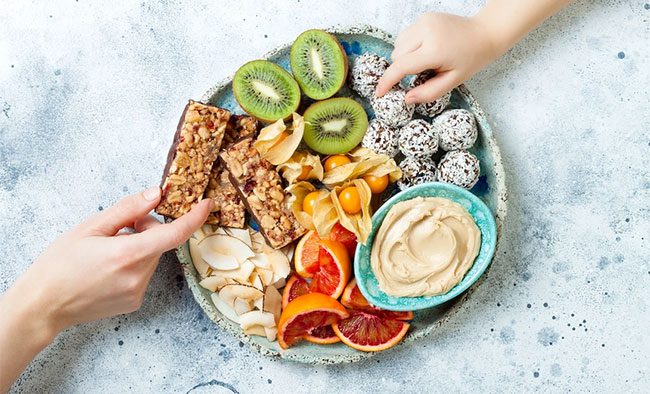Snacking is a major contributor to weight gain and cardiovascular diseases, including strokes. However, snacks are not as harmful as you might think.
At 3 PM, like clockwork, your brain starts urging you to head to the office break room for coffee and snacks. Or, if you’re working from home, you find yourself irresistibly drawn to the fridge, opening it every five minutes.
Dr. Jennifer Shim, a senior nutritionist at Parkway East Hospital in Singapore, states that most people snack at least once or twice a day. Many wonder why they constantly crave snacks, even when trying to lose weight.
Professor Tai E Shyong, Director of the Centre for Chronic Disease Prevention & Management at the National University Hospital Singapore, points out that this craving could be due to your body “adjusting” its desire for snacks.

Many wonder why they constantly crave snacks, even when trying to lose weight. (Photo: iStock).
The expert explains that before the age of five, the food intake is regulated by hormones, and you only consume food when your body genuinely needs it. After this age, you begin to make your own dietary choices, which leads to the development of snacking habits. Without discipline, you may fill your body with snacks high in sugar, salt, and fat.
Not Hungry but Wanting to Eat
Stress is one of the main reasons you might crave snacks. For instance, if you have a significant presentation to prepare for over several days, during stressful moments, you might reach for unhealthy snacks instead of having proper meals, or find it hard to resist snacking.
Dr. Toh Hui Moon, a senior clinical psychologist at the National University Hospital Singapore, explains that when stressed, the body produces cortisol, which increases appetite and the motivation to eat. At this point, food serves to alleviate stress-related responses.
Lack of sleep can also be a contributing factor. Dr. Serene Wong, a consultant at Alexandra Hospital in Singapore, notes that insufficient sleep affects levels of ghrelin—a hormone that stimulates appetite—and leptin, which signals fullness and suppresses hunger.
When sleep is disrupted, these two hormones are affected, causing changes in our eating habits or appetite levels.
Additionally, poor eating habits, not eating enough, or skipping lunch can lead to afternoon snacking cravings. Dr. Lynette Goh, a nutritionist at the National University Hospital Singapore, points out that eating too little can lead to cravings and increased calorie intake from snacks.
Boredom, physical activity, or social interactions, such as chatting with colleagues or friends, can also drive you to snack.

Healthy snacks may not harm your health. (Photo: Kayla Itsines).
Snacking Can Be Good for Your Health
Snacking is often blamed for weight gain and cardiovascular diseases, including strokes. However, it frequently appears in many people’s diets. In fact, those looking to build muscle may want to snack regularly and incorporate necessary exercises to avoid losing muscle mass.
Dr. Lynette Goh states that healthy snacks can actually boost metabolism and prevent overeating at subsequent meals. If the gap between lunch and dinner is more than four hours, you can have a small amount of healthy snacks. The key is to choose low-calorie, high-fiber snacks and opt for unsweetened tea or coffee.
“This will help the body better regulate blood sugar levels, curb hunger, and reduce the chances of overeating or consuming high-fat snacks,” the expert explains.
Dr. Jennifer Shim agrees, stating that healthy snacking can be a good habit that boosts work energy, especially when you feel fatigued.
If you are genuinely hungry, choose a healthy snack that contains fiber or protein, such as a piece of fresh fruit, a small container of low-fat yogurt, a handful of unsalted nuts, or whole-grain crackers paired with low-fat cheese.
If snacking is not necessary for workouts or weight loss efforts, there are several strategies you can implement to avoid snack cravings, such as eating balanced meals rich in nutrients and keeping yourself busy to ward off boredom…


















































